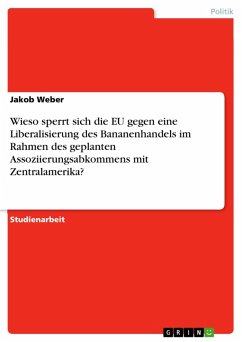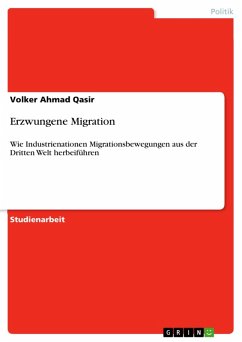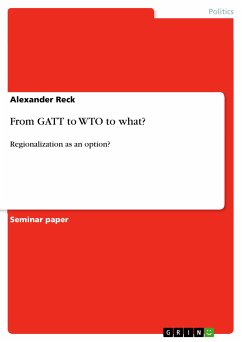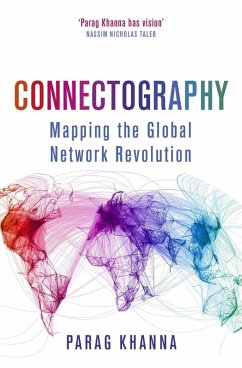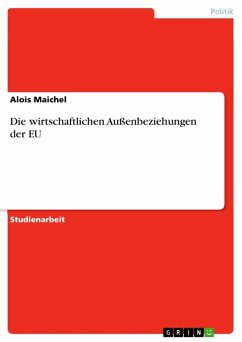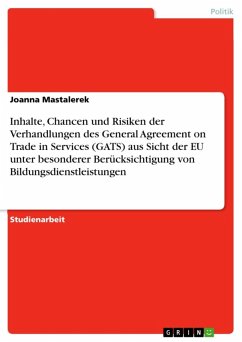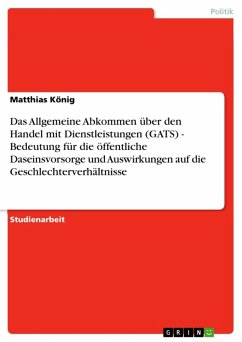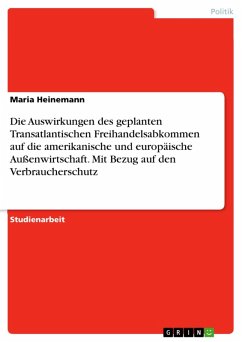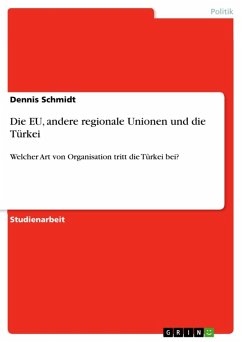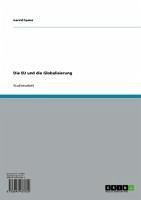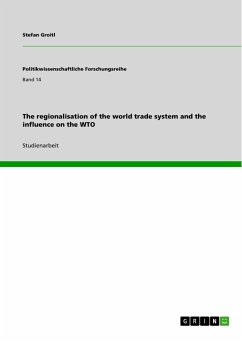
The regionalisation of the world trade system and the influence on the WTO (eBook, ePUB)
Versandkostenfrei!
Sofort per Download lieferbar
Statt: 16,95 €**
13,99 €
inkl. MwSt. und vom Verlag festgesetzt.
**Preis der gedruckten Ausgabe (Broschiertes Buch)
Alle Infos zum eBook verschenkenWeitere Ausgaben:

PAYBACK Punkte
0 °P sammeln!
Studienarbeit aus dem Jahr 2010 im Fachbereich Politik - Sonstige Themen zur Internationalen Politik, Note: 1,7, Friedrich-Alexander-Universität Erlangen-Nürnberg, Sprache: Deutsch, Abstract: The World Trade Organisation (WTO) is "the hub of an international political system under which governments agree to accept commonly negotiated and enforced rules to govern world trade" (Oatley, 2008, 23). It offers a stable system for governments to achieve their goals in the world trade. Its scope extended in the last years and this contains a lot of problems. One good example is the General Agreement...
Studienarbeit aus dem Jahr 2010 im Fachbereich Politik - Sonstige Themen zur Internationalen Politik, Note: 1,7, Friedrich-Alexander-Universität Erlangen-Nürnberg, Sprache: Deutsch, Abstract: The World Trade Organisation (WTO) is "the hub of an international political system under which governments agree to accept commonly negotiated and enforced rules to govern world trade" (Oatley, 2008, 23). It offers a stable system for governments to achieve their goals in the world trade. Its scope extended in the last years and this contains a lot of problems. One good example is the General Agreement on Trade in Services, briefly GATS. During the last decades, international trade in services has grown more rapidly than trade with manufactured goods (Oatley, 2008, 35). Therefore the demand of regulation increased and is now discussed since the Uruguay Round, which started 1986 (Oatley, 2008, 26). Other examples are agriculture, intellectual property rights or competition policy. This development contains a lot of capabilities, but it leads to prolonged discussion rounds like we see at the Doha Conference. The reason is a growing conflict of interests between industrial and emerging countries. An agreement within the WTO, where unanimity has to be achieved, is getting more and more difficult. That is one of the reasons why a lot of countries prefer regional trade agreements. These agreements often extend into areas of domestic disciplines or cover service sectors. Thus they regulate more than only tariff concessions. First this paper gives an overview what Regional Trade Agreements (RTAs) are exactly, then it describes the different existing forms following the chances and risks of the current development. Then the importance of RTAs for the WTO is resolved and if the WTO should encourage them?
Dieser Download kann aus rechtlichen Gründen nur mit Rechnungsadresse in A, B, BG, CY, CZ, D, DK, EW, E, FIN, F, GR, HR, H, IRL, I, LT, L, LR, M, NL, PL, P, R, S, SLO, SK ausgeliefert werden.




